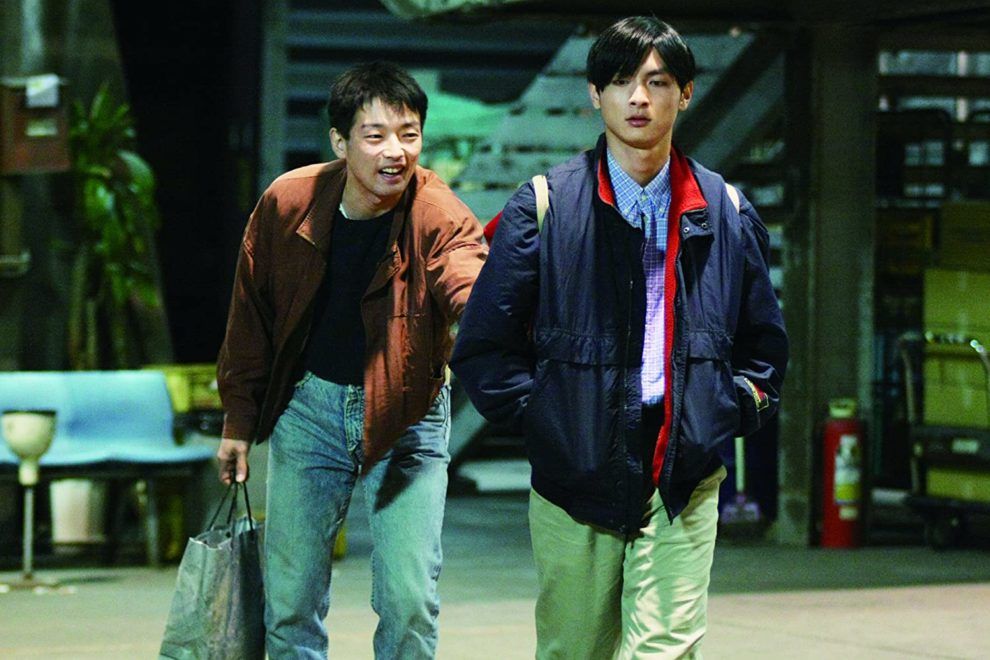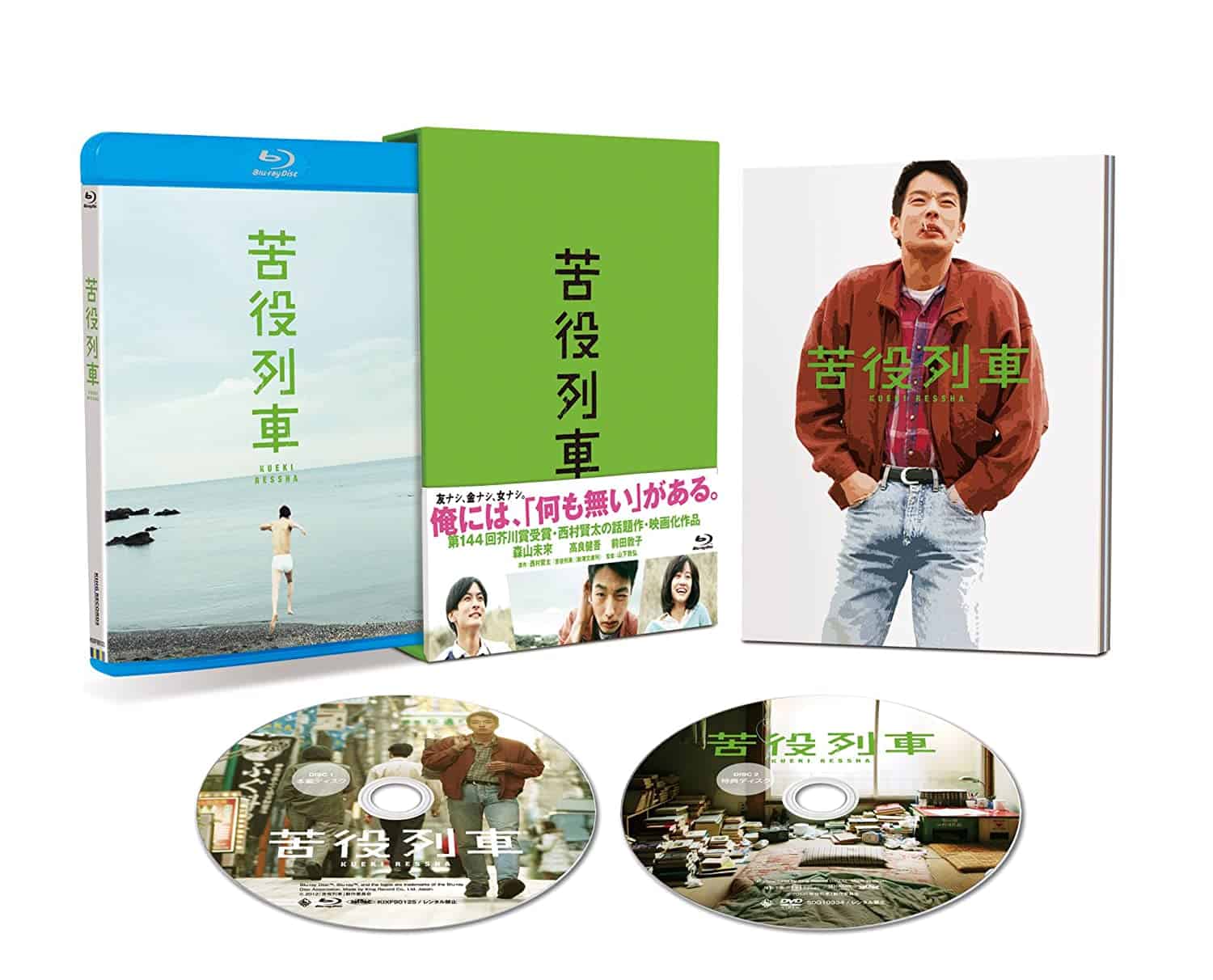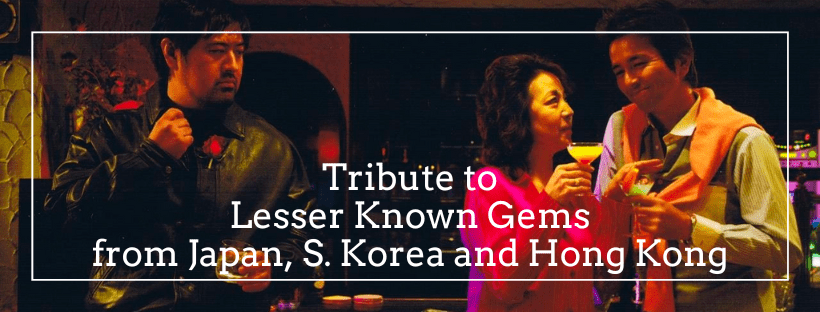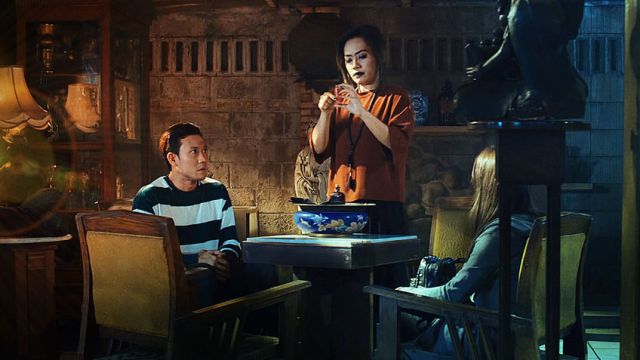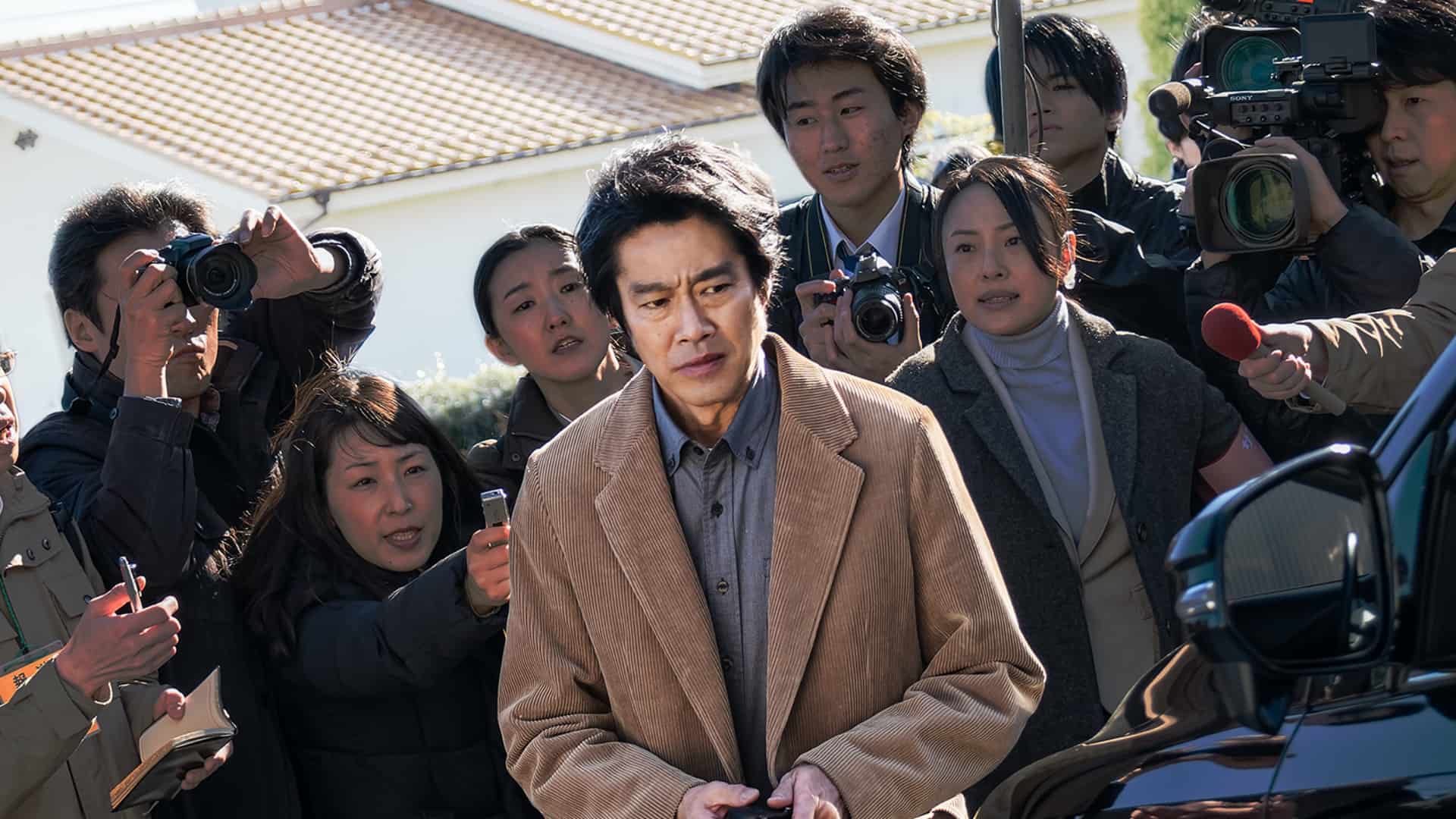I do not think there is any other movie industry in the world that produces so many movies about toxic individuals as the Japanese one, with the independent sector in particular dealing with this type of personas quite frequently, as filmmakers like Shinya Tsukamoro. Tetsuya Mariko and Toshiaki Toyoda extensively focus on this type of loser. Nobuhiro Yamashita attempts to do the same, adapting the Akutagawa Prize-winning novel “Kueki Ressha” by Kenta Nishimura, adding though, a very significant element, the presence of female character Yasuko, who did not exist in the original.
Buy This Title
on Amazon by clicking on the image below
The character in focus is named Kanta Kitamachi, and he is the epitome of the term ‘loser'. Coming from a family that fell apart when his father was convicted as a sex offender, the 19-year-old has been living alone in a tiny apartment, spending all the money he earns from his part-time manual labor in cheep booze, peep shows and second-hand books, and definitely not on his rent, which, at the enervation of his elderly owner, is due some months. At the same time, and since he is totally lacking in social skills, he has no friends, no girlfriend, and is also unable to act on his crush on the cute clerk that works in the used bookstore he frequents, Yasuko. Things, however, seem to pick up for Kanta when he meets Shoji in his work, who has moved to Tokyo to attend college there, and soon tempers his most negative habits with his politeness and willingness, eventually becoming his close friend and even helping him to finally talk to Yasuko. Kanta's self-destructive nature, though, rears its ugly head time and time again.
Unfolding in one of the usual ways of Japanese indies, “The Drudgery Train” begins as a kind of quirky comedy, gradually becoming more and more dramatic as time passes. In that fashion, the initial meeting of the two protagonists is characterized by a weird cheerfulness, as the always willing Shoji trails Kanta, which he considers as kind of a senpai for his work experience, drinking with him and following him to peep shows where they get handjobs. In the beginning, the relationship seems to benefit both, as they get promoted in work, find someone to have a good time with, and eventually even forming a friendly circle with Yasuko, with the day the three spend on the beach being the highlight of their relationship.
However, Kanta's past and the way it has shaped him, starts causing problems quite quickly, and particularly after he is kicked out of his apartment. As he starts pressuring Shoji, first to stay in his apartment and then to loan him money, the latter gradually starts to understand that his friend is problematic. At the same time though, and as it frequently happens with toxic individuals, both him and Yasuko continue to forgive his despicable behavior, probably because they acknowledge his desperate need to connect with someone, and have sex with a girl for that matter. Even their kindness though, has its limits, and with Kanta continuously acting like an a**hole, particularly when he gets drunk, their patience eventually runs out. That not even then does he find the strength to change, results in one of the main comments here, of people whose lives can never even reach rock bottom in order to bounce back in any way.
Nobuhiro Yamashita seems to want to present Kanta as a likable loser, but the truth is that he is a character that is very difficult to like, constantly acting in awful ways, and without having some past behavior that would make his new friends to forgive him because he was good before. As such, he emerges as a rather infuriating, quite unlikeable individual, which is, though, the elements that showcase both Shinji Imaoka's writing and Nobuhiro Yamashita's direction, since a movie with such a protagonist ends up being quite interesting to watch, at least for the majority of its 121 minutes. And I say majority because a number of episodes, as the one with the old acquaintance and the animal mimicking, as much as the prolonged (as usual) ending, could have been either completely omitted or even completely left out, since they do not offer something particular to the story. The same applies to the comments regarding the lives of manual laborers, which are clear, but at the same time somewhat disconnected from the narrative.
Despite this issue though, Takashi Sato's editing is quite accomplished, with him implementing a mid-tempo that works quite well for the narrative. Yoshihiro Takeuchi's cinematography is also on a very high level, with his bleak colors mirroring the lives the protagonists have, and the difference in shooting of the beach scene highlighting how this is just a brief moment of happiness that has very little to do with Kanta's reality.
Yamashita is also lucky enough to receive great performances from his three protagonists. Mirai Moriyama is astonishing as the toxic Kanta, in a role that earned him the Best Actor Award from Kinema Junpo and Best Actor nomination from the Japanese Academy. Kengo Kora is also quite good as Shoji, in many ways the exact opposite of his new friend, with their antithetical chemistry being one of the best traits of the movie. Atsuko Maeda as Yasuko is also very convincing in her kind-heartedness and almost constant cheerfulness, with the moments he is shocked or appalled by Kanta's behavior being her apogee.
Despite the fact that it lacks tension, is a bit too long, and has a rather unlikeable protagonist, “The Drudgery Train” emerges as a very interesting film, with the frustration the viewer will feel for Kanta's self-destructive behavior actually carrying it from beginning to end.


